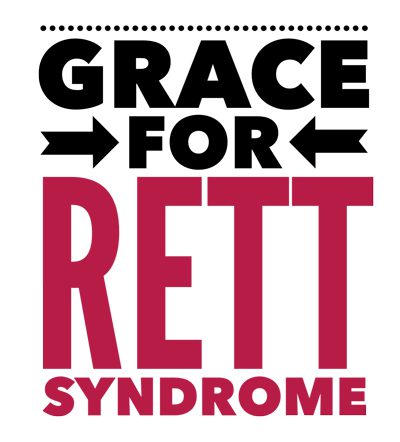“This is what we hear when you pray for a cure. That your fondest wish is that we will cease to be and that strangers you will love will move in behind our faces.”
-Jim Sinclair
Do I wish Grace didn’t have Rett?
Is depends on which day you ask me. One day, I’ll say “I’d go to the ends of the earth. Do whatever it takes. Give my own life if she could be cured.”
On another day, I’ll say “of course not! Rett is part of who Grace is whether I like it or not.” Sometimes, the very hatred of Rett makes me uncomfortable because there’s this perfect little girl in my life and Rett is her cross to bear. And if I just stand there and hate it, am I not hating part of her? If she was ginger here in the UK where you get ridiculed for being a red-head, would I say “I hate ginger!”
“But having red hair isn’t an illness” you say. Which brings me to my next dilemma: is Rett syndrome an illness? Or just a difference? Is Downs Syndrome an illness? Is being gay an illness? Is having ginger hair (which we know is a genetic anomaly) an illness? This whole question of cure. Of healing. Of ‘getting better’ all hinges on these definitions.
When Grace was diagnosed I was flung into this lifestyle I never wanted. WE were flung into this lifestyle. I never imagined that my kids would be the kind of kids who, instead of yelling ‘shotgun!’ and fighting over the front seat, methodically clamp the front of their sister’s wheelchair in while I do the back – a process we’ve gotten down to about 40 seconds. I never dreamed that my 9 year old would be able to carefully administer meds and liquids into his sister’s g-tube. Clamp. Screw. 10ml. Wait 5 seconds. 10ml. Clamp. Screw. Or that these little boys of mine would be able to say to the babysitter, “I’ll teach you how to do her pump when mom leaves.” This is our lifestyle and we didn’t choose it.
Today, as I was watching the latest TED talk while doing my makeup (as I do almost every morning) I watched the most beautiful talk from Andrew Solomon. I don’t agree with some of the things he said. But overall it’s such an amazing talk about not just unconditionally loving our children, but also offering them unconditional acceptance. And what does that look like?
If you don’t want to watch the whole thing (I highly recommend that you do), then at least start watching from 13 minutes in. He says this, which I rewound and watched at least 3 times to really take it in:
“We have to think about how we feel about cures altogether and a lot of the times the question of parenthood is what do we validate in our children and what do we cure in them?
Jim Sinclair, an autism activist, said, ‘when a parent says I wish my child didn’t have autism, what they’re saying is ‘I wish the child I have did not exist and I had a different child instead.’ This is what we hear when you mourn over our existence. This is what we hear when you pray for a cure. That your fondest wish is that we will cease to be and that strangers you will love will move in behind our faces.”
![]()
Oh man…please read that again. Just typing it out had made me start crying right here in Starbucks.
So many Rett parents I know are on this relentless campaign to cure Rett. I was once one of them. I used to run a charity called Cure Rett for goodness sake. I know there will be a cure for Rett someday. I once believed (and now merely hope) this will be in Grace’s lifetime. But I’m not just hoping this for Grace. I’m hoping this for the parents in 5, 10, 15 years who will hear the words ‘your daughter has Rett syndrome’. And I believe that there are many cures for Rett that aren’t a reversal of the gene that causes it. We also need to cure misconceptions, cure communication. Cure the day to day problems these girls and women face. Cure the sadness that siblings and families live with. Cure the loneliness. Cure the loss of friends following a diagnosis.
And as for MY daughter with Rett? Do I want her to be cured? Yes. But do I want her to be a completely different person? No. Do I want her to stop struggling to breathe, scratch her itches, communicate? Yes. Do I hate Rett?
Yes.
No.
Rett syndrome has ended up being one of the biggest paradoxes I’ve ever faced.





